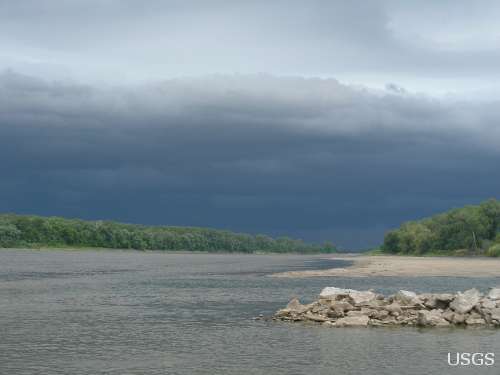
The Need to Address Water Security
 Recently the New York Times ‘Green Blog’ published a harrowing article highlighting the possible impact of one of our most overlooked national security issues: water security. The article demonstrated the direct impact of insecure water supplies on an entire civilization – hugely important in itself — and prompts the reader to ask “are we really prepared for serious constraints on access to fresh water reserves?”
Recently the New York Times ‘Green Blog’ published a harrowing article highlighting the possible impact of one of our most overlooked national security issues: water security. The article demonstrated the direct impact of insecure water supplies on an entire civilization – hugely important in itself — and prompts the reader to ask “are we really prepared for serious constraints on access to fresh water reserves?”
Throughout history intricate river systems have allow for the existence of civilization. Interestingly, finite river water makes up 0.0002% of the earth’s water and 0.06% of all freshwater. This scarcity shows how changes in water supplies have the potential to undermine security by increasing tensions between and within states.
Research conducted on the relationship between environment and conflict suggests the most persistent conflicts of the past twenty-five years — like the Rwandan genocide, the Darfur crisis, and Yemen’s instability — were indirectly caused by unsustainable water management.
As riparian states — states that border rivers — search for abundant freshwater supplies, it is possible we will see rivalries for scarce water sources arise, but we are also likely to see cooperation. Research by Aaron T. Wolf shows that from 1945-1999, “cooperative events between riparian states outnumbered conflicts by more than two to one.” As an aside, the degree to which our lives are reliant upon freshwater from river systems is interestingly highlighted when noting that the concept of “rivalry” derives from the Latin word rivalis, literally meaning “to use another’s river”.
Although we do not have a crystal ball to predict what will occur should we not take steps to combat this issue effectively, we do have existing barometers.
Possibly the most worrying trend is that of melting glaciers in the Himalayas, which have the potential to cause flooding followed by severe drought for millions in China India, and Pakistan: three key states with nuclear capabilities and a history of geopolitical rivalry. Chinese water shortages alone are extremely problematic. Already water shortages in more than 300 of China’s 640 major cities costs China an estimated $11.2 billion in annual industrial output.
As American foreign policy continues to shift toward Asia, it is important that we understand how long-term water security in the region will impact future conflict and cooperation.
Watch this space for future discussions on how to build long-term water and environmental security throughout this key region.







[…] Baker: The Need to Address Water Security […]
[…] Baker: The Need to Address Water Security […]
[…] alter electricity generation. By 2030, the effects of climate change – rising temperatures, changes in water availability, rising sea levels, and an increased occurrence and severity of storms – will pose grave risks to […]